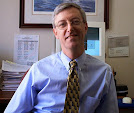I wasn't even sure where Caracas was or what country it was in when we
went to join my father. He had gone to
supervise the construction of a dam about thirty miles from Caracas.
A day or two after I graduated from high school my mother and I had the
furniture packed and sent to Pennsylvania and
we took off from Washington's National airport
bound for Venezuela.
I was very reluctant to go. This was my
tenth move and I was again leaving behind friends and familiar surroundings and
going into the unknown. This move was really the unknown.
We boarded a Pan American flight which was indeed the
equivalent of a milk run. There were
stops at Raleigh-Durham, Atlanta, Jacksonville, Miami; Camaguey, Cuba,
Port au Prince, Haiti;
Kingston, Jamaica;
Aruba and, finally, Maiquetia in Venezuela.
I shall always remember the stop in Jamaica. The takeoffs and landings made my ears pop
and ache and, on this particular landing, we encountered some air pockets that
made the plane buck and weave. When we
landed my ears hurt and my stomach was queasy.
We had a rest top here and we walked gratefully across the tarmac to a
Quonset hut which was the airport terminal.
A brisk, smiling woman came to greet us and said "Welcome to Jamaica. Please come in and have a rum punch, courtesy
of the Jamaican rum industry." I
sipped it grateful for the friendly British and my stomach seemed to quiet
down.
My father met us at Maiquetia looking tanned and fit. He had a company car driven by a nice looking
Venezuelan named Jose. We loaded the
baggage and were soon on our way. I was
impressed with the few Spanish phrases my father managed and was determined to
learn it myself.
The trip up the mountain road to Caracas was a blur of first impressions. There was the breathtaking view of the Caribbean behind us as we wound up the heavily travelled
road. There were loaded buses coming
down toward the sea at breakneck speed, trucks decorated with garlands on the
hood and names like "My Girlfriend" or "The Champion"
written on the fenders. I saw new trees
and flowers, flocks of sea birds and the occasional vulture. Every so often we
passed crosses near a heap of stones with flowers draped on them. I was told that these spots marked fatal
automobile accidents. I was sobered by
this but not so the other drivers. Speed
seemed to be of the essence.
We entered the outskirts of Caracas and I could see cloud-tipped
mountains on either side of the city.
There were red tile roofs and church spires and small shops all
interspersed on the narrow streets. We
passed through the main plaza, the heart of the town, with its home of Simon
Bolivar and two beautiful old churches on three sides of the square. Everywhere were people, walking, shopping,
getting in and out of the open streetcars, and no one seemed in a hurry. Jose seemed to navigate the traffic with no
trouble. We left the heart of the town
and drove down a wide avenue past a block of striking mahogany trees and
stopped, finally, at a small hotel called the Ambassador, run by a friendly
German couple.
It felt good to get out of a moving vehicle and walk for a
change. I was immediately aware of the
exciting strangeness of it all. The
sights, sounds and smells were all different.
The air was clear and clean and the sky was a blazing blue, mountains
sharp in the distance. There had been a
shower before we arrived and the spicy smell of ozone, rotting leaves, flowers,
kerosene and cooking assailed me. Would
I ever get to know this place?
The hosts greeted us cordially and showed us our rooms. They were accompanied by their four-year-old
daughter, Heidi, who spoke English with us easily. I later learned that she spoke German and
Spanish just as easily. I was
overwhelmed. Only four and she could do
that! I felt useless.
The two weeks that we stayed at the Ambassador introduced me
to Venezuela
at first hand. We learned how to get
into town, saw the shops, admired the 18 carat cochano gold jewelry native to Venezuela, found that orchids were very common
and that they cost less than apples which had to be imported from the United States.
We found out that there was no twilight. Day ended and night fell. I saw all kinds of native people, black,
brown, white and all shades in between plus all the Americans and Europeans living
there. I celebrated my eighteenth
birthday the week after my arrival and received a bracelet made from Bolivares,
the silver money of the country. I also
got a small bottle of Chanel #5, very cheap in Venezuela, and finally a small
silver lighter to celebrate my coming of age in smoking. The only thing holding me back now was
learning the language. That and
friends. In due time we got an
apartment, I learned survival Spanish and I made some friends. It was just the beginning of my love affair
with Caracas.





No comments:
Post a Comment